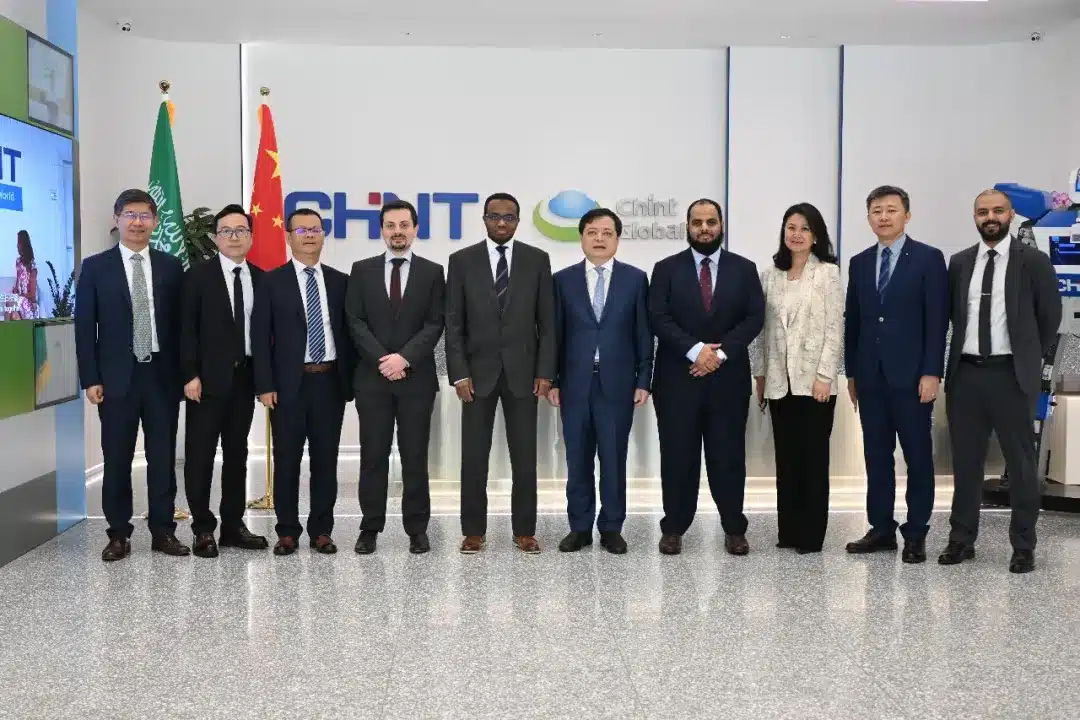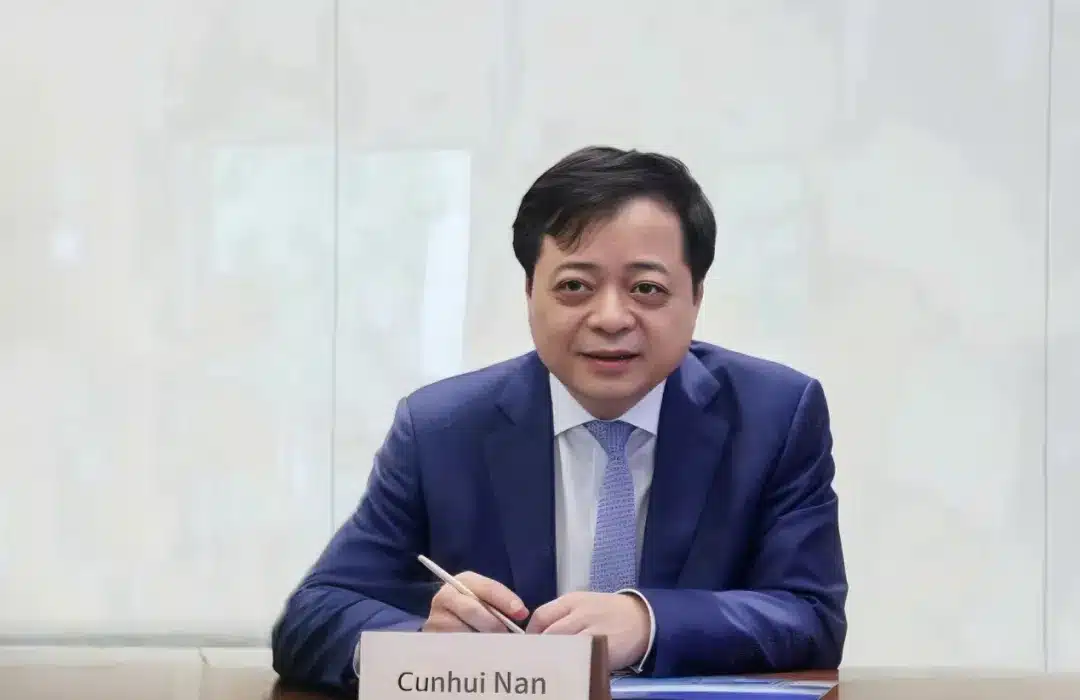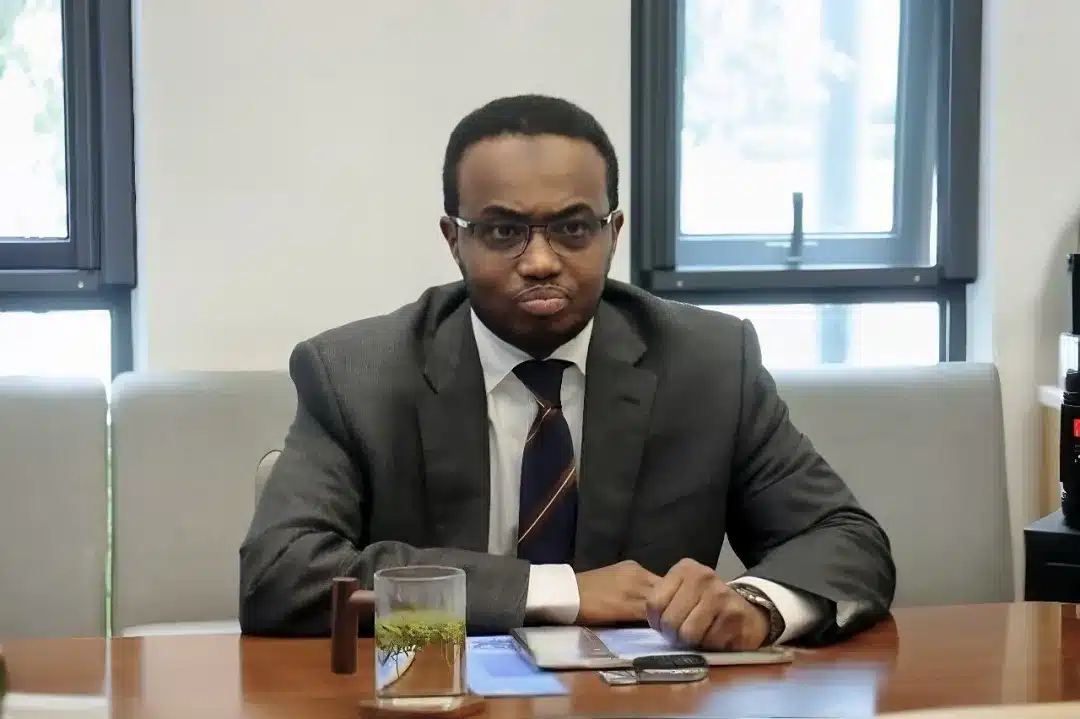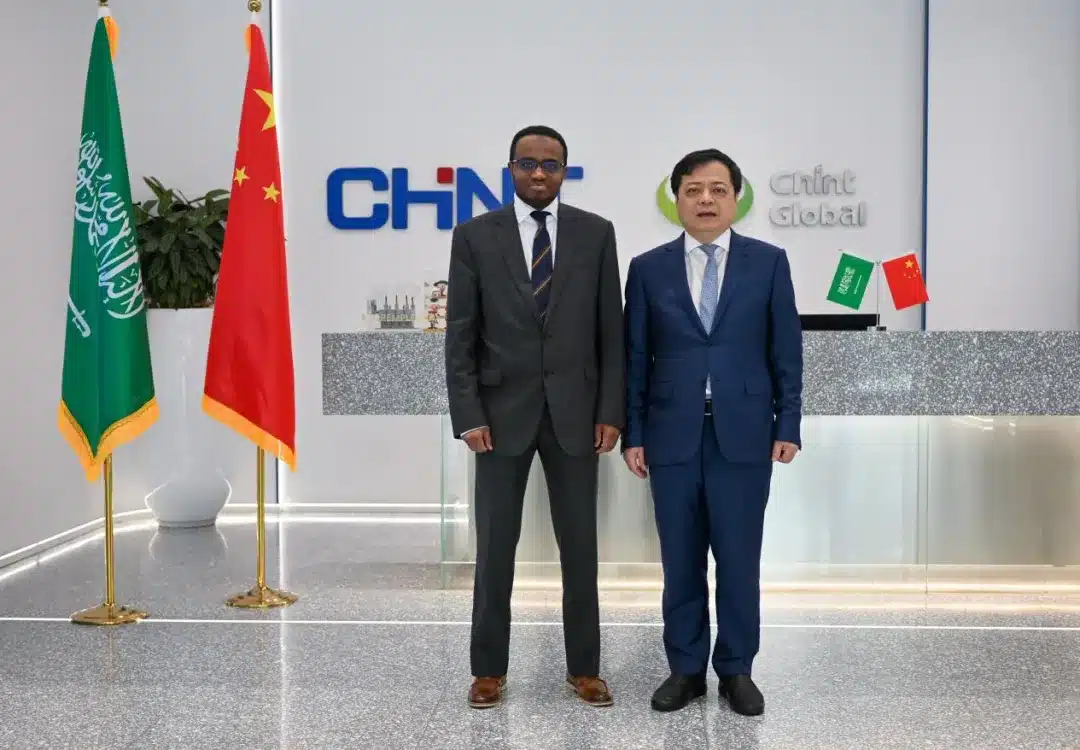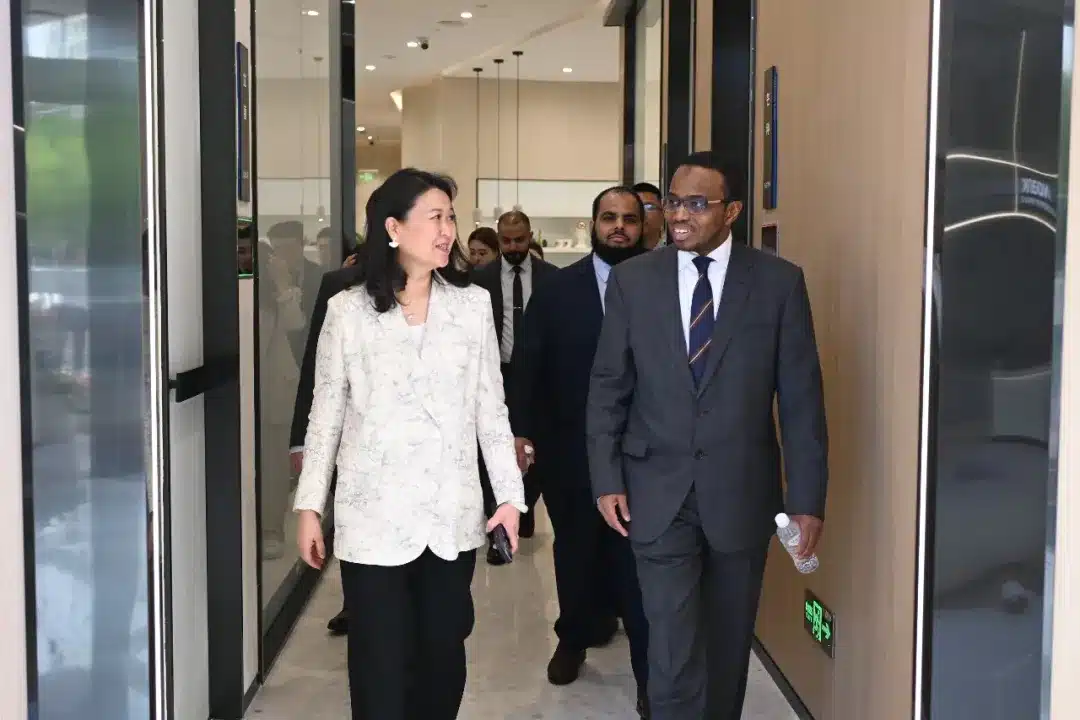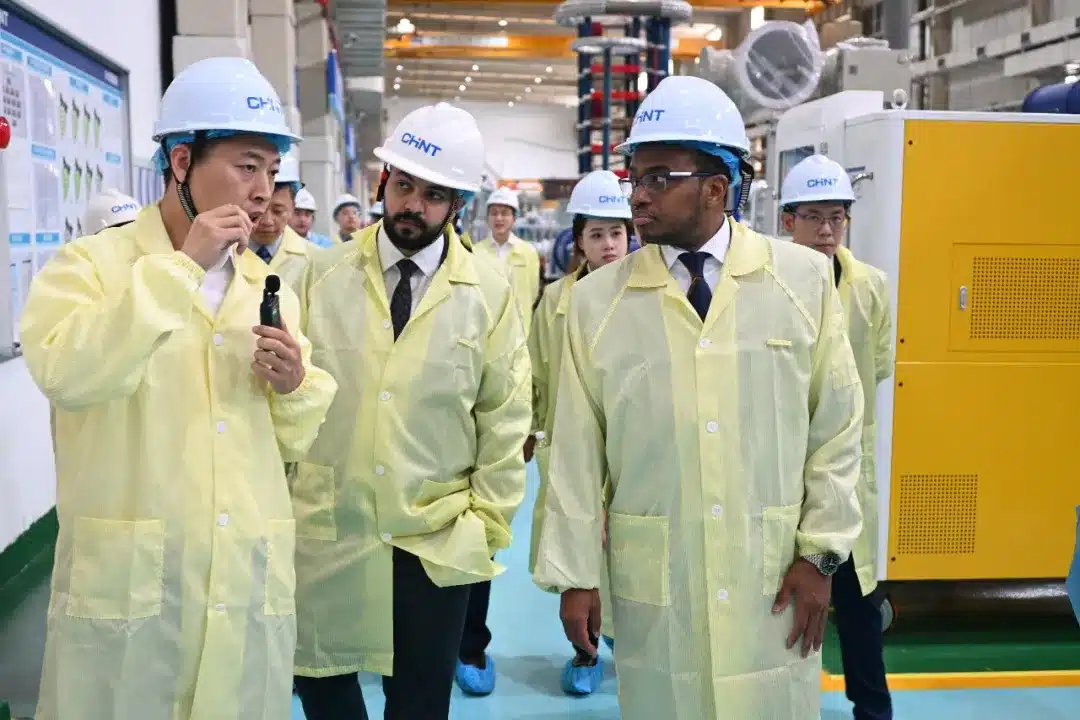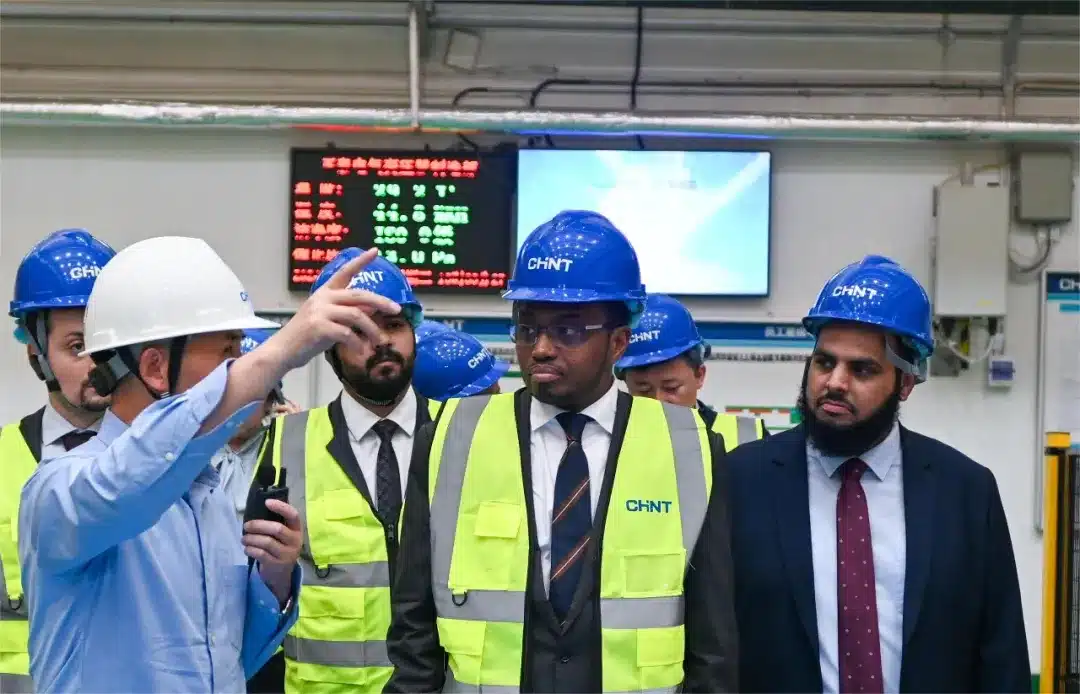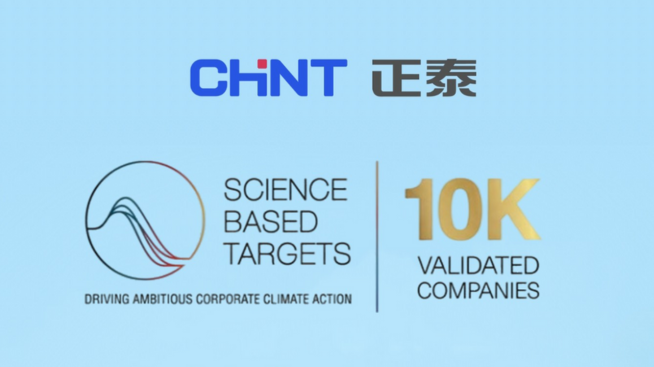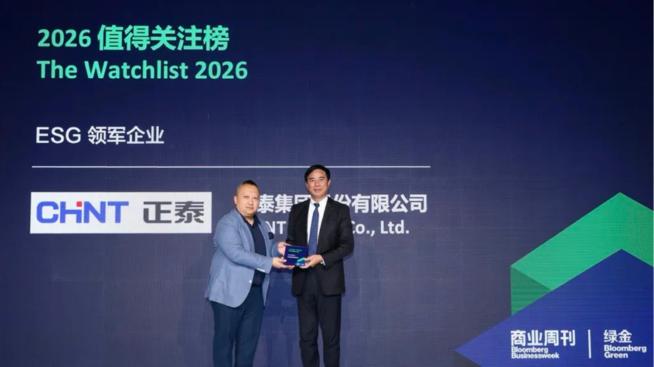On July 17, Fuad Mosa, the Deputy Minister of Localization, Local Content, and Risk Management in the Ministry of Energy, along with his delegation, visited CHINT Smart Electrical Port Park and held talks with Cunhui Nan, the Chairman of CHINT Group, to discuss extensive cooperation in the energy field and CHINT’s localization and development efforts in Saudi Arabia.
During the visit, Fuad Mosa and his delegation toured the Noark exhibition hall and CHINT Intelligent Experiment Center, and had the opportunity to observe the production workshop at the factory. Fuad Mosa showed a keen interest in innovative solutions, such as ship-shore electrical integration and smart buildings, and spoke highly of CHINT’s successful project cases. He expressed his desire to explore additional cooperation opportunities in the future and to implement a wider range of solutions in collaboration with CHINT.
Hamad Alswailem, Director of Electricity Localization Department, Saudi Ministry of Energy, Abdullah Alageel, Director of Enablement Development Department, Saudi Ministry of Energy, Lily Zhang, Director of CHINT Group and President of CHINT Global, Yuhao Cheng, Assistant to the President of CHINT Group and General Manager of Strategic Investment Department, Naihu Li, Dean of CHINT Group Technology Research Institute, and Zhihui Cheng, Assistant to the President of CNINT Electric, accompanied the visit and discussion.
Cunhui Nan, Chairman of CHINT Group, warmly welcomed Fuad Mosa and his delegation, and expressed gratitude for Saudi Arabia’s ongoing support for CHINT. He acknowledged the exceptional geographical advantages of Saudi Arabia, highlighting its connectivity and attractive energy positioning and development plans. Cunhui Nan praised the commendable policies and practices implemented in the country. Looking ahead, intensifying its efforts in green and low-carbon development, and making further investments. The company remains dedicated to advancing the localization process in Saudi Arabia.
In addition, CHINT will leverage its advanced technologies and expertise gained over the past 40 years in the fields of energy, energy storage, power grid, supply chain, testing and other areas. It will combine these with the local resource endowment, power grid conditions, market demand, and specific challenges faced in Saudi Arabia. The aim is to introduce CHINT’s most advanced technologies and products to support the country’s construction projects.
Furthermore, CHINT is committed to assisting in the training of more high-tech local employees in Saudi Arabia. This initiative aims to build a robust ecosystem and contribute to the development of a skilled workforce. By establishing a sound ecological chain, CHINT aims to bring greater value to the local development efforts.
Fuad Mosa, the Saudi Arabia Deputy Minister of Localization, Local Content, and Risk Management in the Ministry of Energy, expressed his appreciation for CHINT’s investment in Saudi Arabia. He highlighted the friendly and close cooperation between China and Saudi Arabia over the past year. Given the ongoing energy transformation in Saudi Arabia and its diverse energy requirements, there is a need to identify suitable energy suppliers for energy integration.
Looking ahead, the development of Saudi Arabia will require the establishment of more high-tech laboratories, and companies with advanced technologies are welcomed to contribute to local development in Saudi Arabia. CHINT, with its extensive technical expertise and abundant resources, is well-positioned to play a significant role in developing localized projects and teams in Saudi Arabia. The expectation is that CHINT will assist Saudi Arabia in addressing future challenges related to energy transformation and grid interconnection, while also bringing a more comprehensive supply chain and helping optimize the local industry structure.
In turn, Saudi Arabia is committed to providing support to enterprise in their local development efforts and facilitating partnerships with local entities.
During the meeting, both sides reached a consensus on conducting extensive cooperation in various areas. The agreed-upon areas of collaboration include energy, human resources, scientific research cooperation, and green low-carbon development. To ensure the successful implementation of these strategic initiatives, a special team will be established. This team will work towards promoting improved efficiency, a faster pace of implementation, and better outcomes in the cooperative efforts.




